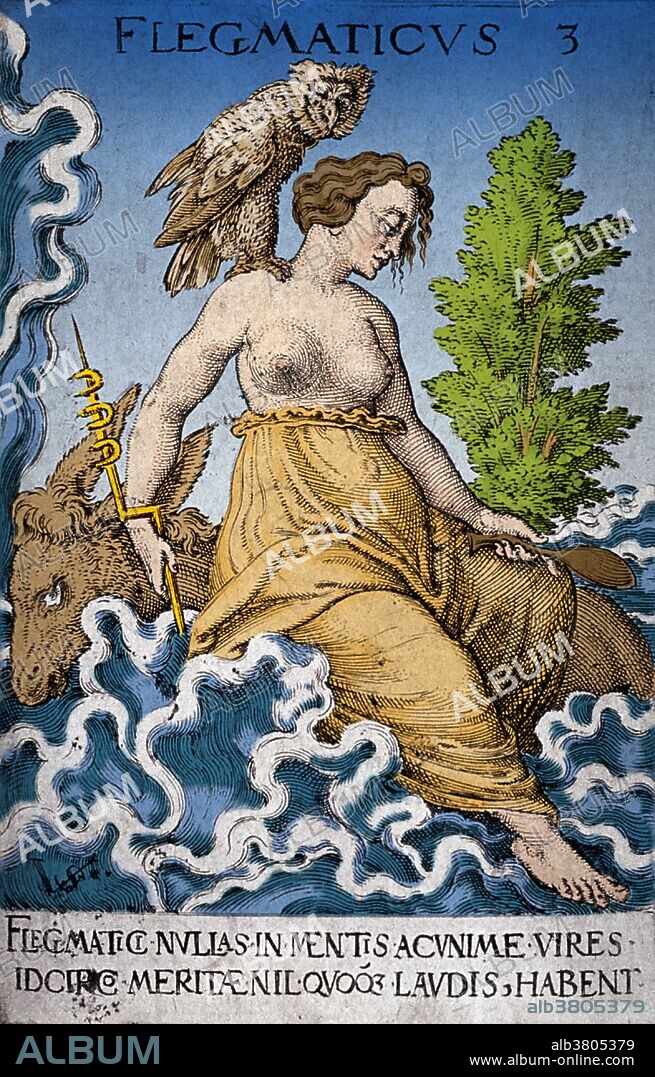alb3805379
Hippocratic Medicine, Four Humors, Phlegmatic

|
Zu einem anderen Lightbox hinzufügen |
|
Zu einem anderen Lightbox hinzufügen |



Haben Sie bereits ein Konto? Anmelden
Sie haben kein Konto? Registrieren
Dieses Bild kaufen.
Nutzung auswählen:

Titel:
Hippocratic Medicine, Four Humors, Phlegmatic
Untertitel:
Siehe automatische Übersetzung
Phlegmatic. A bare-breasted young woman, with an owl perched on her shouder, is sitting on a ram's back at water's edge, the waves crashing about her. She holds a short staff and a ladle. Humorism was a belief that an excess or deficiency of any of four distinct bodily fluids known as humors in a person directly influences their temperament and health. From Hippocrates onward, the humoral theory was adopted by Greek, Roman and Persian physicians, and became the most commonly held view of the human body among European physicians until the advent of modern medical research in the nineteenth century. The four humors of Hippocratic medicine are black bile, yellow bile, phlegm, and blood, and each corresponds to one of the traditional four temperaments. Four temperaments is a belief that there are four fundamental personality types, sanguine (pleasure-seeking and sociable), choleric (ambitious and leader-like), melancholic (analytical and literal), and phlegmatic (relaxed and thoughtful). Engraving by Virgilius Solis, the Elder, 16th century. This image has been color-enhanced.
Bildnachweis:
Album / Science Source
Freigaben (Releases):
Bildgröße:
2880 x 4500 px | 37.1 MB
Druckgröße:
24.4 x 38.1 cm | 9.6 x 15.0 in (300 dpi)
Schlüsselwörter:
16. JAHRHUNDERT • 16. JH. • AKT (MALEREI) • ENTBLÖSSUNG • ENTBLÖßT • EULE • ILLUSTRATION • ILLUSTRATIONS • NACKT (NACKTHEIT) • NACKT • PHLEGMATIKER • VOGEL: EULE
 Pinterest
Pinterest Twitter
Twitter Facebook
Facebook Link kopieren
Link kopieren Email
Email
